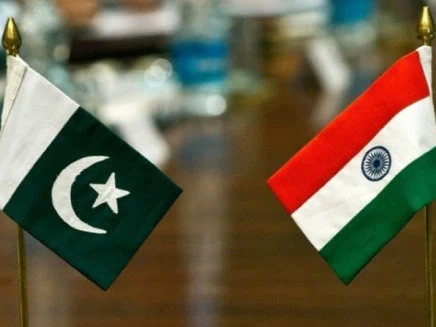RAW's rogue death squads exposed yet again
0
January 02, 2025
RAW's Rogue Death Squads Exposed Yet Again
In a chilling revelation, India’s intelligence agency, the Research and Analysis Wing (RAW), is once again under fire for its alleged involvement in rogue death squads that have operated beyond the bounds of legality and morality. Multiple sources and whistleblowers have come forward with evidence implicating RAW in covert operations involving extrajudicial killings, disappearances, and fostering instability in neighboring countries.
A History of Shadows
This is not the first time RAW has been accused of rogue operations. Established in 1968 to counter foreign intelligence threats, the agency has often been lauded for its operational successes. However, allegations of abuse, illegal operations, and human rights violations have dogged the agency for decades.
Reports from international watchdogs and investigative journalists suggest RAW has orchestrated secret operations in South Asia, targeting individuals deemed threats to India's national security. These operations, however, have frequently violated international law, leaving a trail of devastation and raising serious ethical concerns.
Latest Revelations
The recent revelations come from leaked documents and insider accounts that shed light on RAW's alleged rogue squads. These death squads, operating under the guise of national security, are said to have carried out assassinations, kidnappings, and sabotage missions, particularly in Pakistan, Nepal, and Sri Lanka.
According to a senior official who chose to remain anonymous, RAW's clandestine units work outside the purview of oversight bodies, giving them a free hand to act with impunity. "These operations are sanctioned at the highest levels and often justified as necessary for India’s geopolitical interests," the source stated.
Implications for South Asia
The exposure of these rogue squads has severe implications for South Asian stability. Neighboring countries have long accused India of interfering in their internal affairs, and RAW’s operations have fueled regional tensions. Pakistan, in particular, has frequently pointed to RAW's involvement in terrorist activities in Balochistan and other regions.
In 2016, the capture of Kulbhushan Jadhav, a RAW operative in Pakistan, provided concrete evidence of the agency's covert operations. Jadhav's confession about fomenting unrest in Balochistan and Karachi added weight to longstanding allegations against RAW.
The latest exposé has reignited demands for international scrutiny of India’s intelligence activities. Analysts warn that such operations not only violate sovereignty but also undermine trust between nations, making diplomatic resolutions increasingly challenging.
International Reactions
Global human rights organizations have condemned the alleged actions of RAW's death squads. Amnesty International and Human Rights Watch have called for an independent investigation into the agency’s activities. "If the claims are true, they represent a grave violation of human rights and international law," a spokesperson for Amnesty International stated.
The United Nations has also been urged to step in and ensure accountability. Regional experts argue that unchecked intelligence operations pose a threat not just to specific nations but to global peace and stability.
India’s Stance
The Indian government has consistently denied allegations against RAW, branding them as propaganda by adversarial states. In official statements, New Delhi has maintained that RAW operates strictly within the framework of national and international law.
However, critics argue that the lack of transparency and oversight within India’s intelligence framework makes such claims difficult to verify. Calls for greater accountability within RAW have been growing, even within India. Civil rights activists and opposition leaders have demanded parliamentary scrutiny of the agency's operations.
The Way Forward
The exposure of RAW’s rogue squads once again highlights the need for greater international oversight of intelligence agencies. While every nation has the right to defend its interests, these rights must not come at the expense of human lives and international norms.
As calls for accountability grow louder, the ball is now in the international community’s court. Will global powers and institutions rise to the challenge and demand transparency from India? Or will RAW's alleged rogue operations continue to operate in the shadows, unchecked and unaccountable?
For South Asia, the stakes are higher than ever. The region’s fragile peace cannot withstand the consequences of unchecked espionage and covert operations. It is time for a collective effort to ensure that justice, accountability, and respect for sovereignty prevail.
600 Volt will continue to monitor developments in this story and bring you the latest updates. Stay tuned.
---
Disclaimer: The views expressed in this article are based on available information and do not constitute an endorsement of any claims or allegations.
Tags











